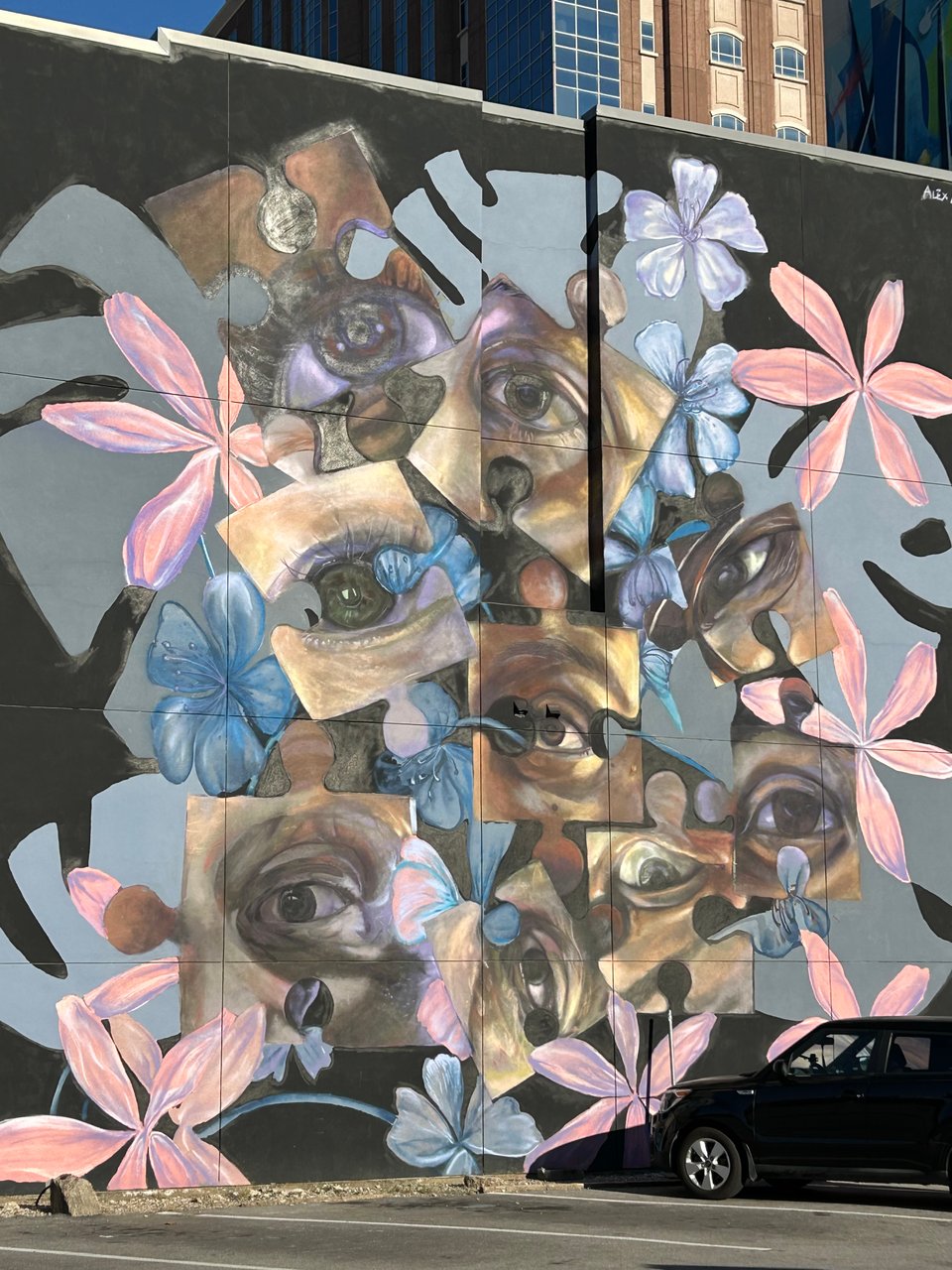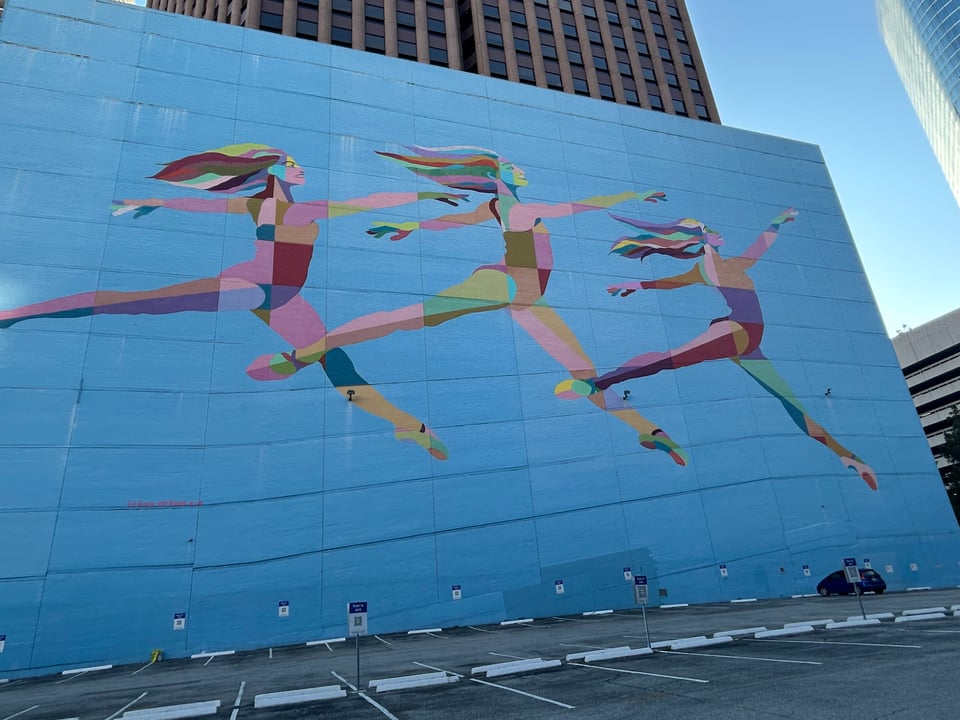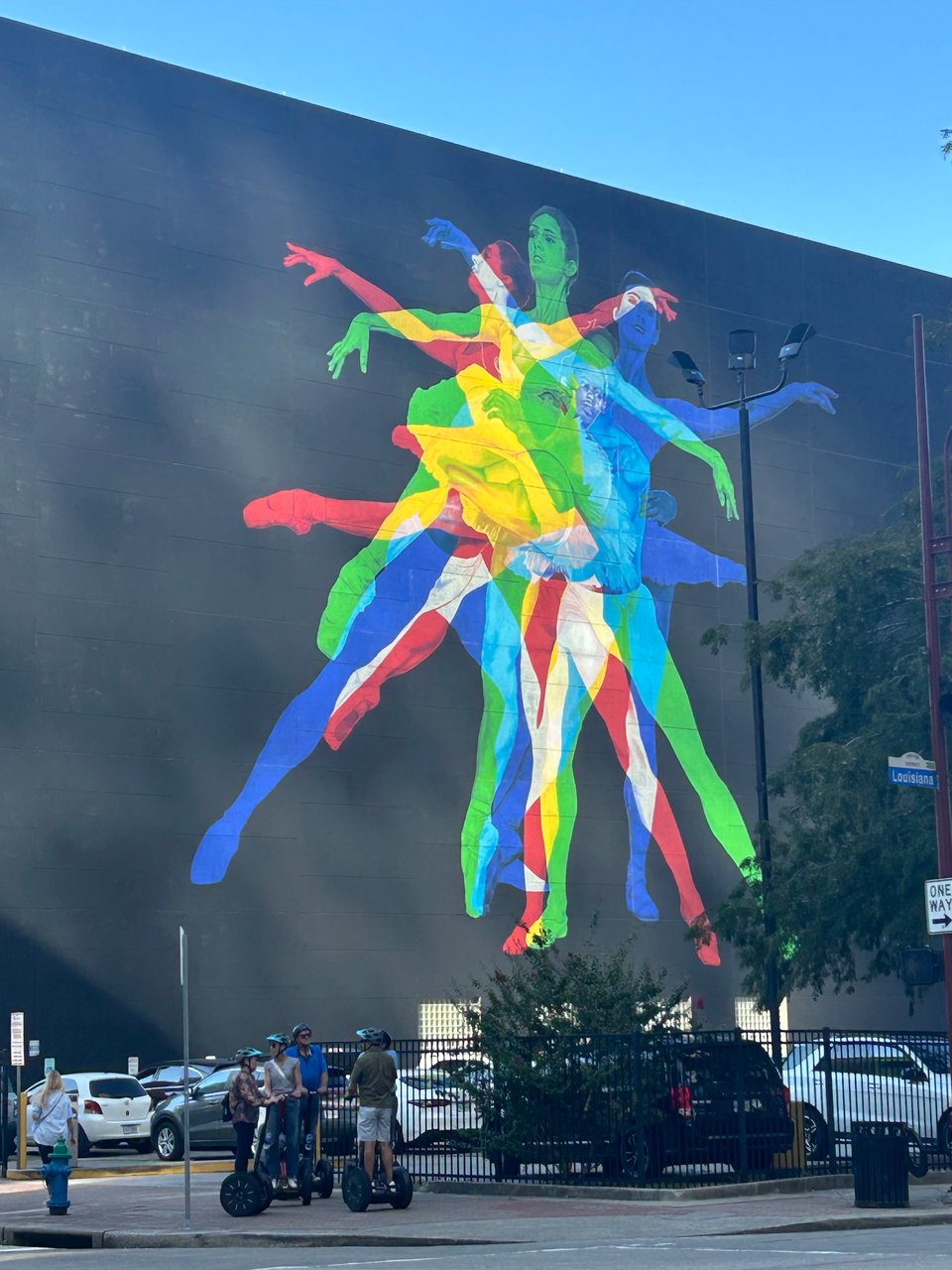Hi, Society
leave the door open
The Soul selects her own Society —
Then — shuts the Door —
To her divine Majority —
Present no more —
Unmoved — she notes the Chariots — pausing —
At her low Gate —
Unmoved — an Emperor be kneeling
Upon her Mat —
I've known her — from an ample nation —
Choose One —
Then — close the Valves of her attention —
Like Stone —
My teenage obsession with Emily Dickinson started with a community theater production of The Belle of Amherst. I watched as our church choir director, on stage in a weird white eyelet dress, hair pulled back severe as any small-town theater maven in 1978, got her one-woman show on. She baked a cake, spoke poetry intermingled with gossip about her neighbors, and I was hooked. That play’s depiction of Dickinson stayed with me and made me think I knew her poetry, much like the movie Amadeus shaped what felt like knowledge of Mozart and his music. Julie Harris’ Belle was the tiny, wren-like corpse bride to Tom Hulce’s squawking peacock of a Wolfgang, both roles limning genius as a Voice singing unbidden through the throat of an isolated, childlike bird.
In college, one of the first books I picked up was a volume of Dickinson’s work which I put down almost as quickly. I expected to find poems flowing like the casual breath of God but foundered instead on thorny craft and obscure language. Her lines twisted like overmanaged bonsai, as grotesque as they were lovely, as ungainly as they were graceful. In place of a precious, twittering chatelaine, I encountered a half-cracked attic-dweller full of fears, desires, and at least one human’s share of mammoth self-importance.
I think about Emily a lot these days. What was the world on which she — shut the Door? The only chariots or emperors waiting there were in her imagination. Was the small, gated yard in Amherst all the world necessary for her extraordinarily observant mind? Even considering the influx of information available to that mind, how hard could it possibly have been to turn the valves of her attention?
I think about our own valves, rusted, stuck wide open as we send short bursts from our own dark attics into the firehose flow of an ample nation. Everyone’s a genius now.

There’s nothing like a road trip when you’re feeling crazy, and the daily low-level thrum of bonkers in American life has had me counting the hours until this trip to Houston. It didn’t help that both my apartment and office AC had been out for several days. Shutting the door and blasting the air in my truck was sweet liberation. I pressed go and headed down the highway, singing loudly with Joni Mitchell inside my chilly compartment.
In H-town I headed to a room at the opera house to practice. I looked forward to working on an upcoming recital program with M, who is in town to rehearse an upcoming opera. A couple days of music-making, a few friend reunions, some finally decent food (sorry, Waco) the weird private pleasures of hotel shampoos and other cracks in routine - the weekend held promise. No one was around when I got to the theater, so I settled in at the Steinway and wandered far into the weeds of Ryan’s program. Alone with a piano behind a closed door: perfection.
By the time I finished, the hallways were full of people, a crowd of singers assembled to rehearse. From far inside my own head, I emerged into a sea of colleagues, friends, and former students, all of us surprised to find each other there. Exclamations, embraces, words rushing against time limits - you look great! where are you living? how’s it going? - theater magicking as it will, a show bringing people together from so many communities and instantly forming the next one. Houston, Michigan, Cincinnati, New York, Sewanee, Austin, Chicago, and Nashville met in that hallway, thirty years of connection, my own divine majority.
After eighteen unexpected minutes of hugs, their rehearsal room door had to close. I walked across the street for sushi and ate it at the crowded bar. A corporate group burst into staccato laughter. A couple brought their heads close for secret talk. Two college football games zigzagged above the glasses, shouts and groans flying at the screens. A jazz trio played valiantly below and between. Surrounded by strangers as suddenly as by friends, I was snug, tidily perched amid the roiling world’s endless variation.
Next morning I walked to breakfast. People in Lululemon or cargo shorts and college tees talked to the voices in their earbuds, cradled their phones screen side up, drank coffee, maneuvered bags for dry cleaning and dog waste, sat on curbs with bags full of their belongings, stepped into alleys to urinate or change shirts, moved as the patches of shade shifted. Studiously avoiding conversation, we all moved stone-faced through the blinding sun.
I opened the door of a super-cooled cafe and walked into a warm circle of friends, for a few hours all the world at one little table. V and C brought their oldest, a kind-eyed adult version of the tiny toddler who once raced around their NYC apartment (proud sequel to a legendary illegal Midtown sublet). We reminisced about New York and then reached way back to the Bay Area where we all started as professional musicians, last students of teachers formed in Europe before the great war.
Those formidable artists were as capable as any human of existing inside their own heads and using wealth to curate their lives. Their studio walls were covered with self-portraits. It seemed like a lot, before everyone began to accumulate such galleries. The waitress brought me an omelet with more cheese than I would ever use at home, and I ate every bit of it next to the cold glass wall.

Back at the opera house, I negotiate some stranger time warps. At one point I set my iPhone down on the edge of the sink in the restroom and experience an intense sense memory of setting down my hot pink Motorola flip phone in exactly the same place. Well, hi there, 2006, how have you been?
Working through the recital, M and I quickly find a flow between us, even after more than two years apart. This ease comes not so much from our individual expertise as from our mutual desire to make it happen. Managing the valves of that flow is not always easy, and my eyes fill with tears during one of the Mahler songs.
Mankind is in so much trouble
Mankind is in so much pain
I would so much rather be in heaven
It’s German folk poetry more than two centuries old, speaking of sorrows timeless and universal. Sort of. The editors of Des Knaben Wunderhorn, the wildly popular 1805-08 anthology containing this poem, edited it freely and probably wrote many of the poems themselves. In a Germany recently subdued by Napoleon, patriotism was rising, and the Wunderhorn poems came to be seen as a celebration of a authentic German national soul. The texts are largely about the horrors of war, but they also romanticize retreat into internal fantasy. My tears connect me to Mahler’s chosen sentiment - life is frightening and painful and I wish it wasn’t - but they also signal a welcome settling into the embrace of music, its pleasurable creation together with a trusted friend.
Emily, I give you back your chariots and emperors. There was surely an endless world behind your closed door, as there is behind mine. Navigating between those worlds is the tricky thing. And there’s no getting around the fact that one of them is materially real, and that we are creatures who live in it.
In an era of closing doors - on thought, speech, travel, immigration, exchange, and eventually in some fantasies on the ships that will take us away (well, not you, not me) to some other planet - we lean into them, pushing against the force of what on the other side threatens to overwhelm us. If we can just shut that out, we will be safe.
But ultimately, we are curating ourselves. Destructive in every direction, our deadly proscriptions are aimed most directly at our own hearts.
B and I tear into Vietnamese food and irritate the waiters by commandeering a table for the whole night. Absorbing understandable glares, preparing to leave a big tip, we embark on rollicking, sublime hours of catch-up.
Travel is wearing on B. They’re thinking of retooling, finding a way to spend more time at home, the lovely nest they haven’t seen since July.
“I need to feel like I’m in a place. Like, a place,” says B, gesturing with flat hands at the ground. “A real place. Not a stage. Or a page,” they laugh.
It’s a fun turn of phrase, a twist on theater’s “from page to stage,” referring to the development of a play. I knew B when they stepped into the spotlight, and as I eat my vermicelli, I can imagine their path from stage and page back to a place-based sense of self and story. B longs for constant connection to two real, distinct, intertwined locations on the turning earth: the treasured, cozy retreat behind their door, and the community flourishing outside.

When we look back on this era, I wonder if one of the things we’ll talk about is mankind’s violent transition into a theatrical life. Shakespeare called us all players a few centuries back, and we’ve always self-directed our tales of sound and fury, working to manage our own publicity. We’ve always experienced a range of challenges in simultaneously existing inside and outside of our own heads. Our technology hasn’t altered us from scratch, but it surely has inflamed, distorted, and hyperscaled what we already are.
I’m grateful to Houston for reminding me how joyful this life of constant reinvention can be, how useful its tools for moving through time. I’m grateful to these friends for their sweet willingness to catch and hold me as I fly past. And as we creatures come together to breathe and make sound, to embrace and laugh and eat and remember, I can only keep coming back to our bodies, brave and strong and vulnerable and not built to stay. We can’t survive without the wondrous, mapless universes of our minds and hearts, but we can’t live there either.
Emily said in a different poem, don’t shut the door, don’t shut the door. She was talking to angels then, but I’m grateful she gave this much better advice.
Thanks to all the initialed pals above, and to HGO for many years of connective tissues. And one for Mahler!
Add a comment: